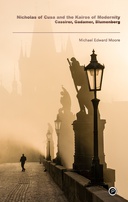Explore

Nicholas of Cusa and the Kairos of Modernity
Michael Edward Moore
2013
0 Ungluers have
Faved this Work
Login to Fave
In this far-reaching essay, historian Michael Edward Moore examines modernity as an historical epoch following the end of the medieval period — and as a “messianic concept of time.” In the early twentieth century, a debate over the meaning and origins of modernity unfolded among the philosophers Ernst Cassirer, Hans-Georg Gadamer and Hans Blumenberg. These thinkers tried to resolve the puzzle of the fifteenth-century master Nicholas of Cusa. Was Cusanus the last great medieval thinker, his ideas a summa of medieval tradition? Or was he a mysterious epochal figure, seated at one end of the bridge leading to modern thought? Nicholas of Cusa lived during a time of historical and existential crisis, or kairos, when medieval governments and cherished sources of unity were shaken. Likewise, the debate over his significance took place during a later phase of crisis for Europe, in the decades before and after the Second World War, when the collapse of European civilization was witnessed. Moore argues that modernity, so intently examined as an historical and spiritual problem, has significance for our contemporary sense of crisis.
This book is included in DOAB.
Why read this book? Have your say.
You must be logged in to comment.
Rights Information
Are you the author or publisher of this work? If so, you can claim it as yours by registering as an Unglue.it rights holder.Downloads
This work has been downloaded 479 times via unglue.it ebook links.
- 83 - pdf (CC BY-NC-SA) at OAPEN Library.
- 198 - pdf (CC BY-NC-SA) at Unglue.it.
Keywords
- History of Western philosophy
- Humanities
- intellectual history
- Middle Ages
- modernity
- Nicholas of Cusa
- Philosophy
- thema EDItEUR::Q Philosophy and Religion::QD Philosophy::QDH Philosophical traditions and schools of thought::QDHF Medieval Western philosophy
- Western philosophy: Medieval & Renaissance, c 500 to c 1600
Links
DOI: 10.21983/P3.0045.1.00Editions

